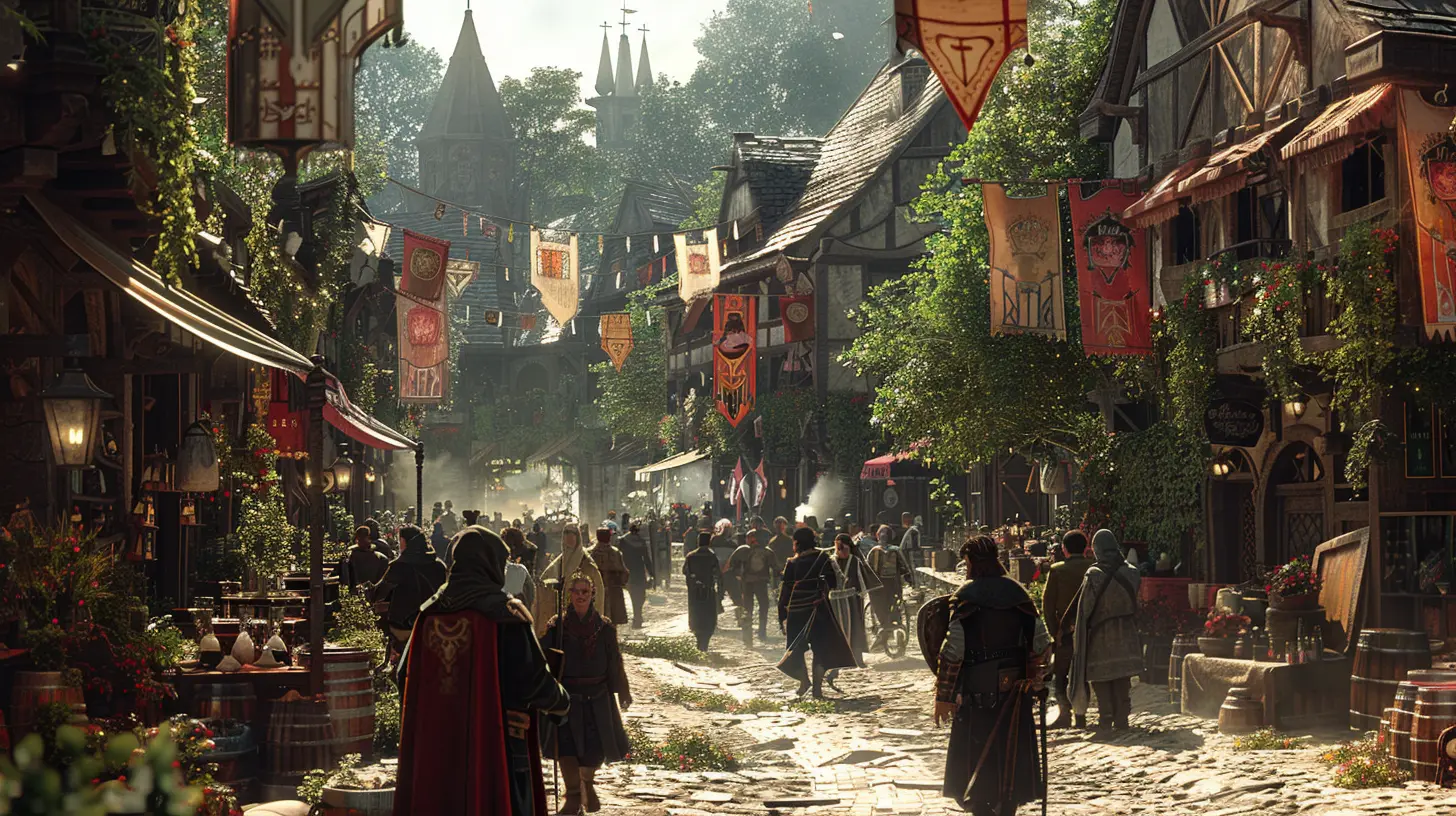Why Some Games Never Leave Beta: What It Means for Developers and Players
24 May 2025
Let’s be real — if you’ve been a gamer for a while, you’ve probably come across that one game that just can’t seem to “finish.” It’s stuck in this perpetual state of beta like it’s caught in a time loop. We’re not talking about your usual updates or patches. Nope, this is about games that live (and sometimes thrive) in beta for what feels like forever. But why does this happen? And what does it mean for both the developers creating the games and the players diving into them? Strap in, because we’re about to peel back the curtain on the oddly fascinating world of never-ending betas.
What Exactly Is a Beta, Anyway?
Okay, quick rundown for the uninitiated: in the world of game development, a “beta version” is essentially a work-in-progress version of a game. It’s like the rough draft of an essay, but with way more explosions, bugs, and endless possibilities. Developers release these versions to test the game in the wild, squashing bugs, gathering feedback, and fine-tuning the experience. Betas are like the rehearsal before the big show — except some games never make it on stage for opening night.
Why Do Some Games Stay in Beta Forever?
It’s not because the devs got lost on the way to the “launch” button. There are plenty of reasons games never graduate from beta, and, spoiler alert, it’s not always a bad thing. Let’s break down some of the biggies:1. Funding and Resources
Developing a game is expensive. Like, “maybe-I-should-sell-a-kidney” expensive. Small indie teams or crowdfunded projects especially feel the pressure. For many of these devs, keeping a game in beta helps generate early access revenue to keep the lights on (and pay those pesky bills). Think of it as a game living on a financial life raft.By keeping a game in beta, developers can attract die-hard fans who are willing to support the project in its early stages. But, if funds run dry or progress stalls, the game can get stuck in beta limbo.
2. Player Feedback Loop
Gamers are a passionate bunch — and that’s putting it mildly. Players in a beta are essentially unpaid playtesters who provide constant feedback. Sometimes, developers get so caught up in tweaking and responding to player suggestions that they never draw the line and say, “Alright, we’re done!”It’s like cooking a pot of soup while your roommates keep dropping in new ingredients. You keep taste-testing, adjusting, and — whoops — now it’s been five years, and you’re still not ready to serve dinner.
3. Evolving Vision and Scope Creep
Developers can be dreamers, and sometimes their ambitions grow faster than their ability to deliver. What started as a simple 2D platformer can spiral into an open-world epic with crafting mechanics, multiplayer online battles, and a complex narrative.This constant addition of features can keep a game stuck in beta for years. It’s scope creep at its finest — the game evolves and evolves until finishing it feels like chasing a gold-plated unicorn.
4. Testing New Tech or Ideas
Some games are essentially playgrounds for developers to experiment with new ideas, mechanics, or tech. Keeping the game in beta gives them wiggle room to play around without promising a polished “final product.”Take Minecraft, for example. Before it became the global phenomenon we know today, it lived in beta for what felt like forever. Developers used this time to tweak gameplay, test features, and build up its hardcore fanbase. Safe to say, it worked.
5. The Fear of Launch
Here’s a secret: launching a game is terrifying. Once a game officially launches, it’s open season for critics and review scores. The safety net of “it’s still in beta” disappears. Developers may avoid declaring a game as “finished” because it protects them from that pressure.By staying in beta, devs keep expectations in check and sidestep the “broken at launch” label that has plagued so many high-profile games in recent years. 
What Does This Mean for Developers?
For developers, keeping a game in beta is a double-edged sword. On one hand, it gives them breathing room to innovate, gather feedback, and sustain a steady income stream. On the other hand, it can trap them in an endless cycle of updates, bug fixes, and feature additions.Some devs embrace the beta state as a permanent status quo, branding it as a “live service game.” Others struggle to meet the expectations of a demanding player base while juggling limited resources. It’s like trying to run a marathon that never ends — exhausting and unpredictable. 
And What About the Players?
Ah, the players — the lifeblood of any game. If you’re someone who loves diving into beta games, you’re likely familiar with the pros and cons of this experience.The Pros:
- Early Access to Awesome Content: You get to play the game before anyone else! There’s a certain thrill in being part of something from the ground up.- Community Input: Your feedback shapes the game. It’s like being part of a giant focus group where your voice can directly impact the final product.
- Evolving Gameplay: Beta games tend to change over time. That means new features, updates, and surprises keep things fresh.
The Cons:
- Bugs, Bugs, Bugs: Bugs are par for the course in a beta game. Expect crashes, broken mechanics, and frustration galore.- Unmet Expectations: Some betas never deliver on their promises. It’s a bummer to invest time and money in a game that fizzles out.
- No Closure: Playing a game that never leaves beta can feel like reading the first few chapters of a book that never gets finished. It’s fun… but incomplete.
Famous Games That Spent Forever in Beta
If you think this phenomenon is rare, think again. Tons of popular games have been stuck in beta for extended periods. Here are a few notable examples:1. Fortnite: Believe it or not, Fortnite was in “early access” for years, even after becoming a global sensation.
2. DayZ: This survival game spent what felt like an eternity in beta, drawing both loyal fans and frustrated critics.
3. Star Citizen: The poster child for ambitious projects, Star Citizen has been in development since 2011 and still doesn’t have a release date.
These games prove that being in beta isn’t the death knell for success — but it’s definitely not a guarantee either.
So, Is It a Good Thing or a Bad Thing?
Honestly, it depends. For developers, betas can be a lifesaver, allowing them to refine their vision, generate revenue, and keep the creative spark alive. For players, they offer a unique opportunity to shape a game’s future — but also come with the risk of disappointment.It’s a balancing act, like trying to stack Jenga blocks on a windy day. When done right, a long beta can build a loyal community and deliver an amazing final product. When done poorly? It can frustrate players, burn out developers, and leave an unfinished game collecting digital dust.
The Bottom Line
At the end of the day, games that never leave beta are a unique quirk of the industry. They blur the line between development and release, inviting players to be a part of the journey rather than just the destination.So, the next time you dive into a beta game, remember: you’re stepping into a work in progress. Embrace the bugs, celebrate the updates, and maybe — just maybe — you’ll help shape the future of gaming.
all images in this post were generated using AI tools
Category:
Beta TestingAuthor:

Audrey McGhee
Discussion
rate this article
4 comments
Ivan Diaz
Endless beta may signal ambition's clash with reality in game development.
June 18, 2025 at 3:54 PM

Audrey McGhee
Thank you for your comment! Endless beta can indeed reflect the challenges developers face in balancing ambition with practical constraints, highlighting the complexities of delivering a polished experience.
Gabriella Wilcox
Great insights! It’s fascinating to see how prolonged beta phases can impact both player expectations and developer strategies. Balancing innovation with stability is indeed a challenging task.
June 8, 2025 at 3:45 AM

Audrey McGhee
Thank you! Balancing innovation and stability is crucial, and I appreciate your thoughts on the impact of prolonged beta phases.
Rory Wilson
Persistent beta stages reflect developers' struggles with expectations and innovation.
June 2, 2025 at 3:45 AM

Audrey McGhee
Thank you for your insight! Persistent beta stages often highlight the balancing act developers face between meeting player expectations and pushing the boundaries of innovation.
Riven Reilly
Great insights! It's fascinating how prolonged beta phases can impact both developer flexibility and player expectations. Exploring the balance between innovation and stability could further enhance understanding of this phenomenon. Keep up the great work!
May 31, 2025 at 5:13 PM

Audrey McGhee
Thank you for your insightful comment! I appreciate your thoughts on the balance between innovation and stability in beta phases. It's a complex issue that definitely warrants further exploration.



